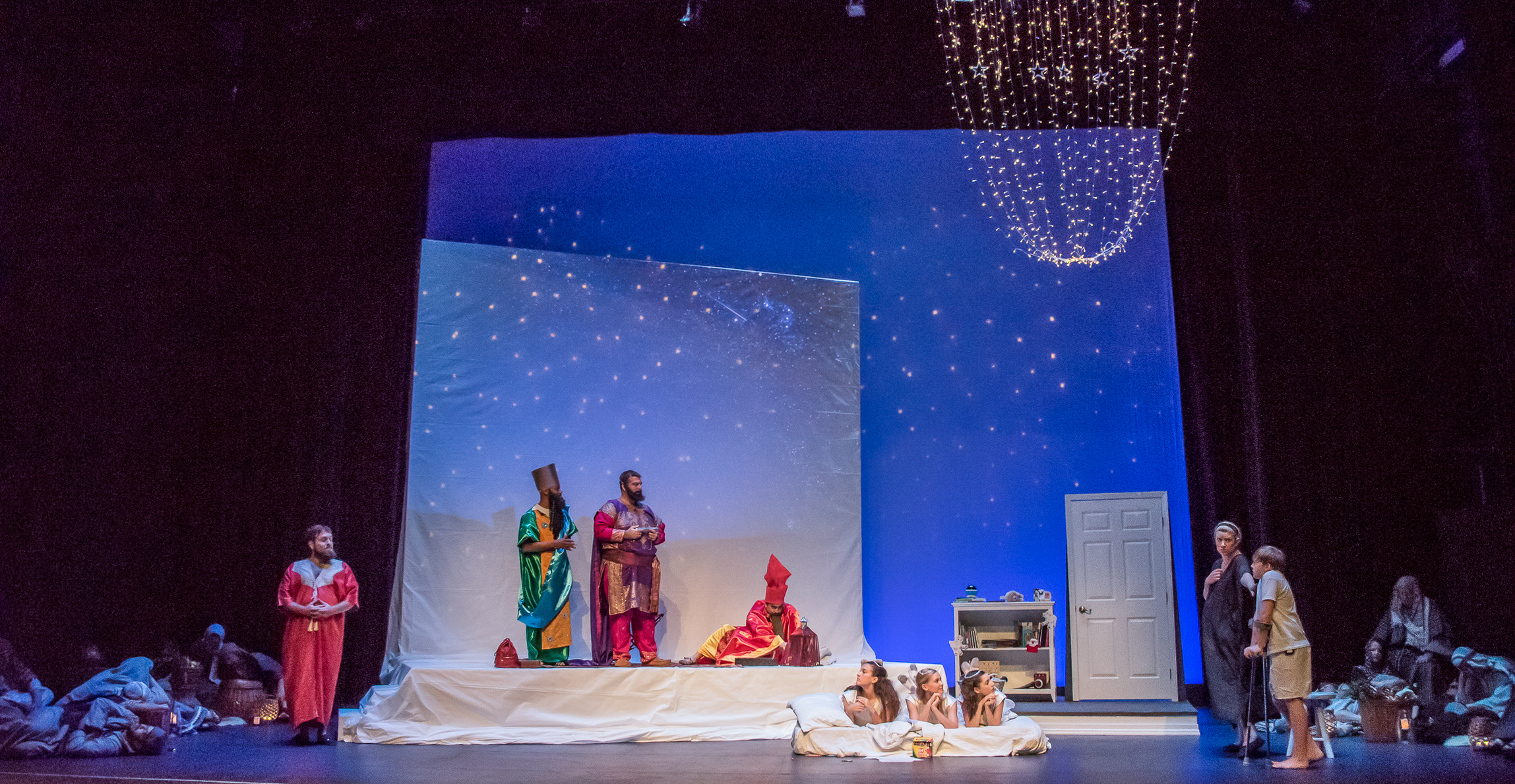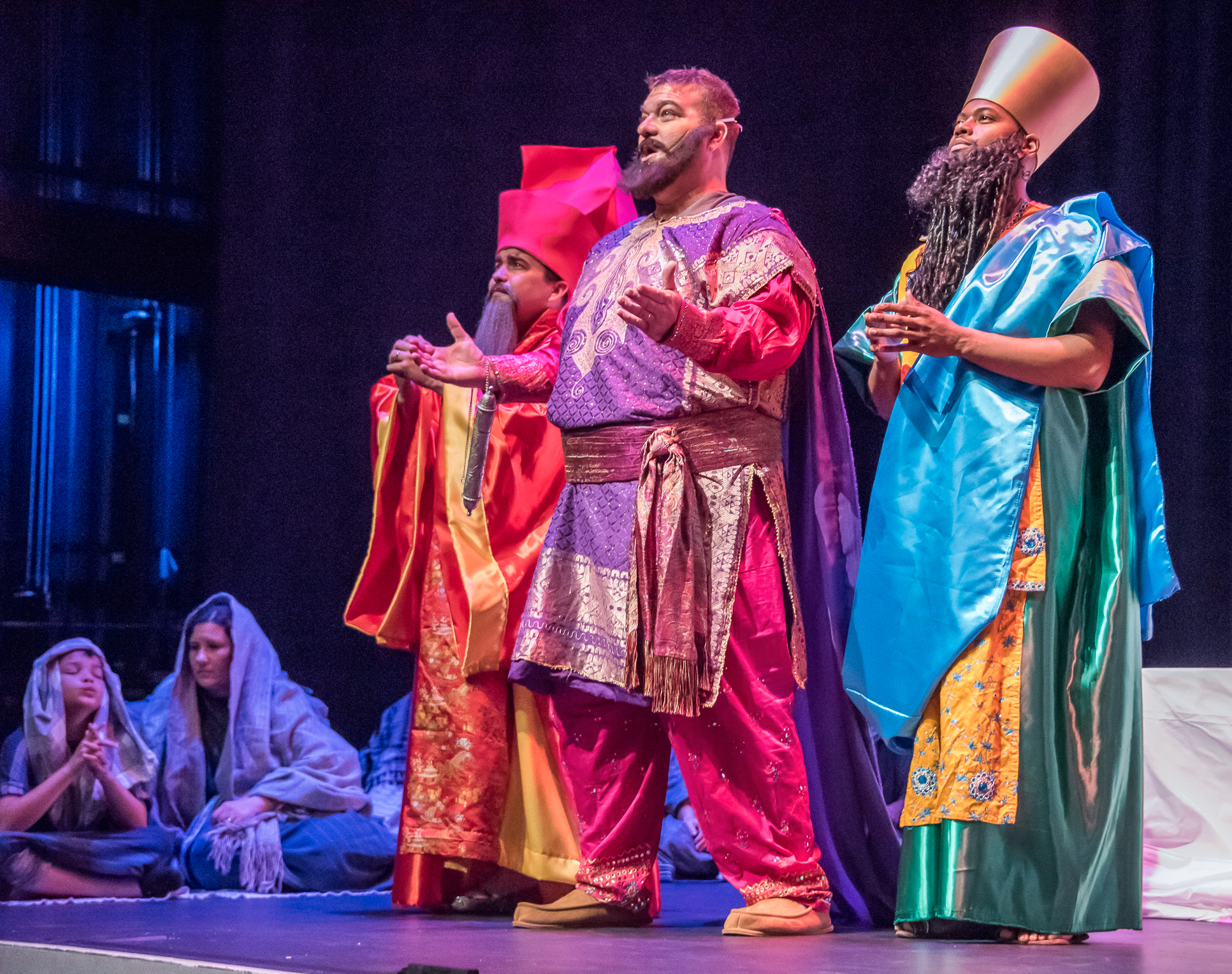It’s not a tradition until you do it twice.
Opera Orlando’s season continued this weekend with their second annual production of Amahl and the Night Visitors, a Christmas-themed opera by Italian-American composer Gian Carlo Menotti. The performance at Dr. Phillips Center’s intimate Pugh Theater establishes what the company hopes will become a new holiday tradition in central Florida.
The 1951 opera tells the story of the young boy Amahl, who is disabled and lives in a rich world of his own imagination, fueled by bible stories. Amahl and his mother, herself weary of her son’s exaggerations, are surprised to find that he seems to have imagined into existence the Three Kings of the biblical Christmas story.

Though originally set in an earlier time, directors Cara Pfost and Grant Preisser chose to reimagine Amahl and his mother as a small, modern family. The choice to modernize the setting is notable for a production hoping to become a tradition of its own, and I found that it served the performance by making the magi and their coterie seem even more otherworldly by comparison. This impression was even further enhanced by a costume design (by Kim Welborn) that separated Amahl’s black-and-white world from the vivid colors of the Kings stepping out of his imagination. My only concern about the setting is that the family is harder to “read” as poor, a fact which is central to the narrative.
Another staged change to the story was the addition of a small dance ensemble. Three figures seem to surround and support Amahl’s spirit and imagination. The tasteful choreography emphasized the centrality of Amahl as the entry point into the narrative, and had the added benefit of foreshadowing the shepherds dance in the middle of the opera.

Perhaps one of the most impressive things about Amahl is its local cast. While many productions might fly in flashy out-of-towners, Opera Orlando shows the talented artists here in central Florida. I was particularly impressed by Morgan Davis Peckels as Amahl’s mother. Her voice was full without being aggressive, a delicate balance which was also reflected in her performance of charming warmth and parental authority with Amahl. Another highlight among a stellar cast was eponymous night visitors: the three kings, sung by Peter Rodrigues, Joseph Colsant, and Chevalier Lovett. In some of the more exposed scoring—this performance is accompanied by a small chamber ensemble led by music director Robin Jensen—the three kings’ voices blended beautifully. The ensemble virtuosity of the trio was matched by the three as soloists, as each brought his own amusing levity in solo passages, which highlighted the fantastical absurdity of the narrative.
While Menotti’s Amahl may not achieve the Christmas ubiquity of Tchaikovsky’s Nutcracker, it is exactly the same sort of sweet, welcoming repertoire that is perfect for the holiday. And working with less familiar material, creative productions, and world-class artists, Opera Orlando can find a middle ground between nostalgia and novelty that creates a holiday tradition worth returning to each year.